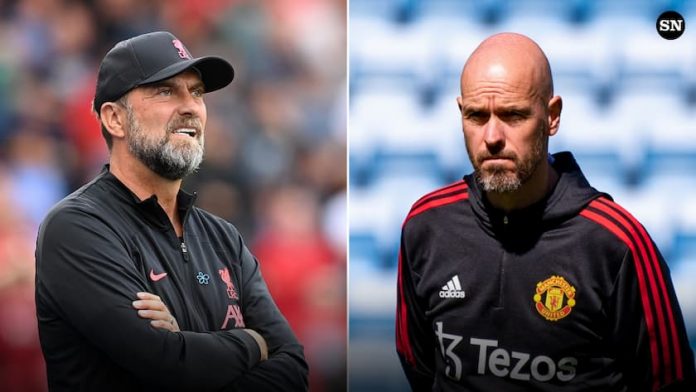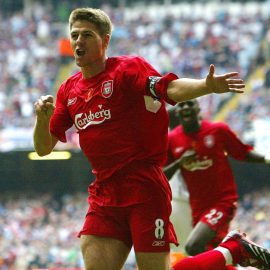As the balls representing Wigan Athletic and Hull City were plucked out the hat signifying that the teams were to meet in The FA Cup third round, few were going to pretend to be filled with excitement at the prospective clash.
Admittedly the tie was not ear-marked as one of the rounds more appealing games and nor was a bumper crowd expected, but few could of failed to be shocked by the sight of row upon row of empty seats for a game in what is described as the worlds most prestigious cup competition.
Spectators attending the game were numbered at just 5,335, less than half of Wigan’s average gate in the Premier League this season.
Things weren’t much better further North at Middlesbrough’s Riverside Stadium. Just 12,474 filled the 34,988 capacity stadium for the visit of money-bags Manchester City in what proved to be Mark Hughes’ penultimate game in charge of the club.
Do figures such as those mentioned suggest that the famous FA Cup is loosing its magic and becoming more of an inconvenience for managers and fans alike, or are there other factors that explain the alarmingly low attendances?
Robert Nichols, editor of Middlesbrough fanzine Fly Me To The Moon told BBC Sport his theory behind the low gate at The Riverside:
“It was freezing. It was winter and an absolute blizzard, A few people were a bit concerned about getting home, what if they got to the ground, would they be able to get home?
And secondly, it was full price for a ticket, which put a lot of people off. People who have got season tickets might not be used to paying up to £30 for a game, if they don’t go to away games, so that’s a big factor.
The club should have cut the ticket prices to £20 for everyone, it would have made a difference especially just after Christmas. The club definitely made a mistake with the pricing.”
Ticket price cuts provided mixed results across other games over the weekend. Nearly 19,000 watched League 1 Southampton take on Conference side Luton and 19,623 visited Craven Cottage to see Fulham take on League 1 outfit Swindon Town. Despite these impressive attendances at not so glamorous ties, price slashes were unable to prevent
the disappointing attendance at Wigan as well as numerous other ties.
So other than certain clubs refusing to slash ticket prices, and Britain’s worst freeze since the 1960’s taking firm hold, why are FA Cup attendances decreasing by the season? Some believe it to be a result of the changing landscape of modern football, one more reliant of the mechanisms of finance than ever before.
The FA Cup offers relatively little television and prize money when compared to that offered for a season in The Premier League. Consequently bottom half Premiership clubs see themselves as having little chance of winning the competition and instead prioritise on league survival. With weakened sides often taking to the field for these games and the clubs supporters knowing they have a slim chance of progressing to the latter stages of the competition, these factors hardly encourage fans to flock in their numbers to the stadiums.
Although smaller clubs dream of a big draw in the cup to provide a significant financial windfall, as well as a memorable day out for their fans as they meet top teams they would never otherwise encounter, the matter of priorities is also relevant to Championship teams and their fans.
The Premier League is our domestic holy ground and winning the FA Cup will not get a team there.
BBC 606 Blogger and Middlesbrough fan known only as Alex said:
“There is absolutely no chance whatsoever that we will actually win the FA Cup. Not a chance. At least when we were in the Premier League we had an outside chance and actually managed to go quite far on occasion. This is compounded by the fact that, in Manchester City, we were playing a team which, even with their reserves out, will beat us 99.999% of the time. It is therefore very difficult to motivate yourself to take interest in the game itself, never mind the entire competition.”
So is the FA Cup only now appealing to those with a genuine chance of winning or those lower league sides handed the opportunity to take on the giants of the modern game?
A suggested way to make the competition more appealing is to offer the winner the fourth Champions League qualifying berth at the expense of the Premier Leagues fourth place finisher. A place in the worlds premier club competition would motivate lesser teams to pour all their efforts into the competition, in the hope that a few favourable draws and good performances could land them in financial dream land. After all, West Ham, Portsmouth and Millwall have all made the final in recent years.
A glance diagonally down, across the Atlantic Ocean also suggests an interesting alternative. The Brazilian Cup prevents top level teams from encountering each other in the early rounds. In addition to this the bigger team also always plays away from home. This ensures full stadiums and an increased chance of an upset, a possibility with roots deeply tied into the romance of the cup.
As much as the mentioned suggestions would spice up our national cup, in brutal honestly The FA are unlikely to alter a structure that has remained in tact longer than the majority of you reading this have been alive.
While admittedly some attendances were massively disappointing for the clubs involved and The FA Cup itself, no other competition can generate the same kind of excitement whether it’s the third round or the final. Attendances in the early rounds hinge a lot on the lottery of the draw.
Is the magic of The FA Cup disappearing? Try telling Leeds fans that as the final whistle went and the scoreboard at Old Trafford read: Manchester United 0 Leeds United 1.
Add Sportslens to your Google News Feed!






